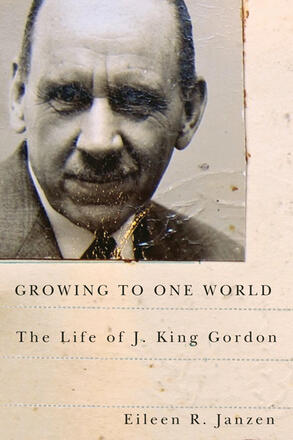
Growing to One World
The Life of J. King Gordon
La description
J. King Gordon's story is one of youthful vision and high ideals sustained throughout a life of concrete action at home and abroad. Grounded in his father's social gospel and given intellectual heft and hue by exposure to radical politics at Oxford and in New York, he returned to Canada as a self-described "Christian radical" and threw himself into the emerging social and political ferment of the 1930s. In Growing to One World, Eileen Janzen details a life spent championing progressive politics in Canada and a commitment to peace and diplomacy on the international stage. As a founding member of the League for Social Reconstruction, Gordon was one of the authors of the Regina Manifesto for the newly formed Co-operative Commonwealth Federation, the forerunner of today's NDP, and worked tirelessly on the party's behalf. Later, he realized his vocation as a member of the United Nations' division of human rights, serving in Korea, the Middle East, and the Congo as both an eyewitness to and participant in formative events shaping those regions. Exhaustively researched and informed by a sophisticated analytical grasp of political theory and international affairs, Growing to One World is a compelling look at an important supporter of peace, justice, and human rights across the globe.
Reviews
“Any realistic reconnaissance … of contemporary post-colonial approaches … could only benefit from a sustained engagement with this illuminating biography of one of the most engaging and celebrated member of the company of secular missionaries. Anyone wit
“An extensively researched and marvellously crafted story, Janzen’s book makes clear the considerable debt that 20th century Canadian liberalism owes to the social gospel. Most importantly it contributes to an understanding of the centre-left liberal cons
"The Social Gospel as a movement has been a neglected theme in a secular age - Growing to One World is an obvious answer to this gap in the historiography of the democratic Left. Janzen is well grounded in political ideology and theology in Canada, the United States, and Great Britain and provides a well-informed view of the post-1945 world and of King Gordon’s role in it. " Desmond Morton, Department of History and Classical Studies, McGill University